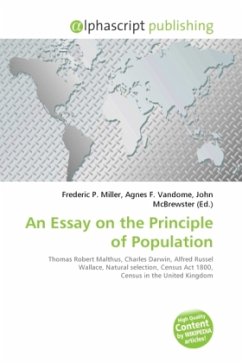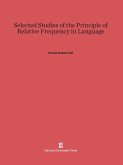High Quality Content by WIKIPEDIA articles! High Quality Content by WIKIPEDIA articles! The book An Essay on the Principle of Population was first published anonymously in 1798 through J. Johnson. The author was soon identified as The Reverend Thomas Robert Malthus. While it was not the first book on population, it has been acknowledged as the most influential work of its era. Its 6th Edition was independently cited as a key influence by both Charles Darwin and Alfred Russel Wallace in developing the theory of natural selection. A key portion of the book was dedicated to what is now known as Malthus' Iron Law of Population. This theory suggested that growing population rates would contribute to a rising supply of labour that would inevitably lower wages. In essence, Malthus feared that continued population growth would lend itself to poverty. One immediate impact of Malthus's book was that it fueled the debate about the size of the population in Britain and led to the passing of the Census Act 1800. This Act enabled the holding of a national census in England, Wales and Scotland, starting in 1801 and continuing every ten years to the present.
Bitte wählen Sie Ihr Anliegen aus.
Rechnungen
Retourenschein anfordern
Bestellstatus
Storno








